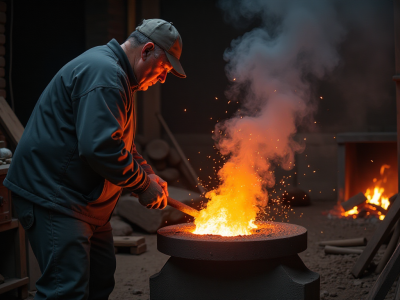Dick Cheney, the former US vice president whose influence reshaped America’s foreign policy and transformed its understanding of executive power, has died at the age of 84.
His family confirmed that he passed away on Monday night from complications of pneumonia and cardiac and vascular disease. His wife Lynne and daughters Liz and Mary were by his side.
Cheney’s career spanned more than four decades of public life. He served under four presidents, helped direct two wars, and altered the balance of power between the presidency and Congress.
As vice president to George W. Bush from 2001 to 2009, he exercised a level of control over defence and intelligence policy unprecedented in American history.
The strategist behind America’s war on terror
The attacks of 11 September 2001 defined Cheney’s legacy. While President Bush was visiting a school in Florida, Cheney managed the crisis from a White House bunker.
He authorised the military to prepare to shoot down any civilian aircraft suspected of being hijacked. The order was never executed, but it demonstrated his conviction that decisive action outweighed caution during national emergencies.
Working closely with his counsel, David Addington, Cheney shaped the government’s counterterrorism framework.
The vice president’s office expanded surveillance powers and endorsed interrogation techniques that were later condemned by human rights groups. Methods such as waterboarding were justified at the time as necessary tools to prevent further attacks.
Cheney centralised authority, reduced congressional oversight, and established the vice presidency as a core instrument of national security policy. His approach redefined how the United States pursued power and secrecy in the name of safety.
The Iraq War and the decline of public trust
Cheney was one of the strongest advocates for the 2003 invasion of Iraq. In 2002, he told the Veterans of Foreign Wars that Saddam Hussein possessed weapons of mass destruction and posed a direct threat to the United States.
Those weapons were never found, and the invasion became a turning point in public opinion.
As Iraq descended into sectarian conflict, Cheney’s confidence gave way to controversy. His 2005 claim that insurgents were in their “last throes” became emblematic of how disconnected the administration appeared from realities on the ground.
Yet he remained unwavering in his belief that preventive warfare was justified by the need to deter greater threats.
Cheney’s health frequently mirrored the turbulence of his political life. He suffered five heart attacks beginning in 1978 and received a heart transplant in 2012 after nearly two years on a waiting list.
Despite recurring illness, he continued to defend the policies that defined his vice presidency until the end of his public career.
Breaking ranks with his party
In later years, Cheney became one of the most prominent Republican critics of Donald Trump.
He described Trump as “the greatest ever threat to our Republic” and announced that he had voted for Democratic candidate Kamala Harris in the 2024 presidential election.
His daughter Liz Cheney, who served in Congress representing Wyoming, also opposed Trump after participating in the investigation into the 6 January Capitol riots.
The Cheneys’ resistance to Trumpism marked a defining break within the Republican Party, symbolising the struggle between traditional conservatism and populist nationalism.
From Wyoming to Washington: a life of power and paradox
Born in Lincoln, Nebraska, in 1941, Cheney began his career as a congressional intern before becoming White House chief of staff under Gerald Ford.
He spent ten years in the House of Representatives for Wyoming and later served as Secretary of defence under George H.W. Bush, overseeing Operation Desert Storm in 1991.
Before returning to politics in 2000, he was chief executive of the oil-services company Halliburton.
Outside public life, he was known for his love of the outdoors, particularly hunting and fly-fishing, although he was once involved in a widely reported hunting accident that injured a companion in 2006.
In a statement, his family called him “a great and good man who taught his children and grandchildren to love our country and to live lives of courage, honour, love, kindness, and fly fishing.”
Cheney’s death ends the life of a man who embodied both the strength and contradictions of American power.
His policies reshaped the world, divided a nation, and left a legacy that continues to influence debates over security, democracy, and the limits of authority.
The post Dick Cheney dies at 84: the Vice President who redefined American power appeared first on Invezz





